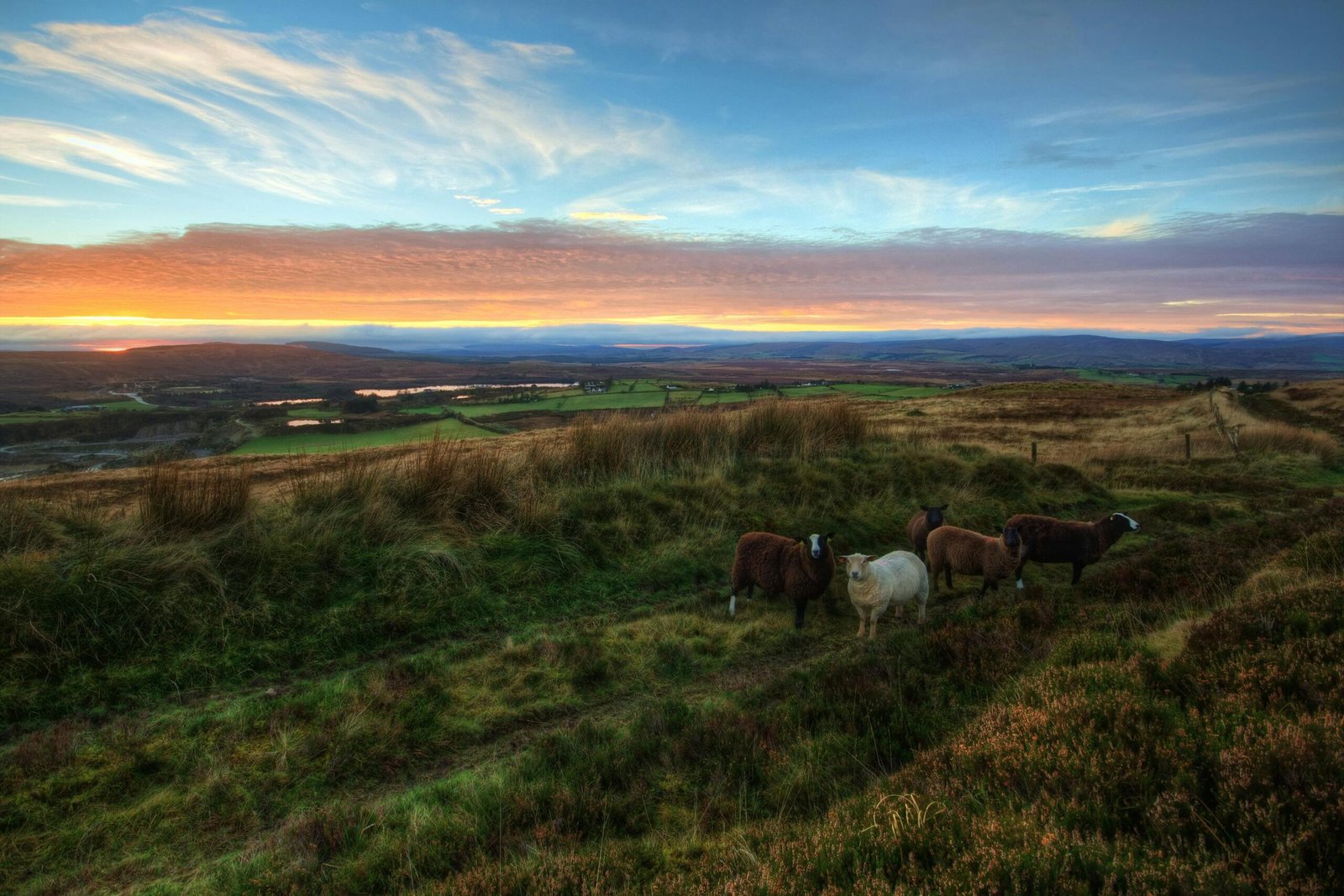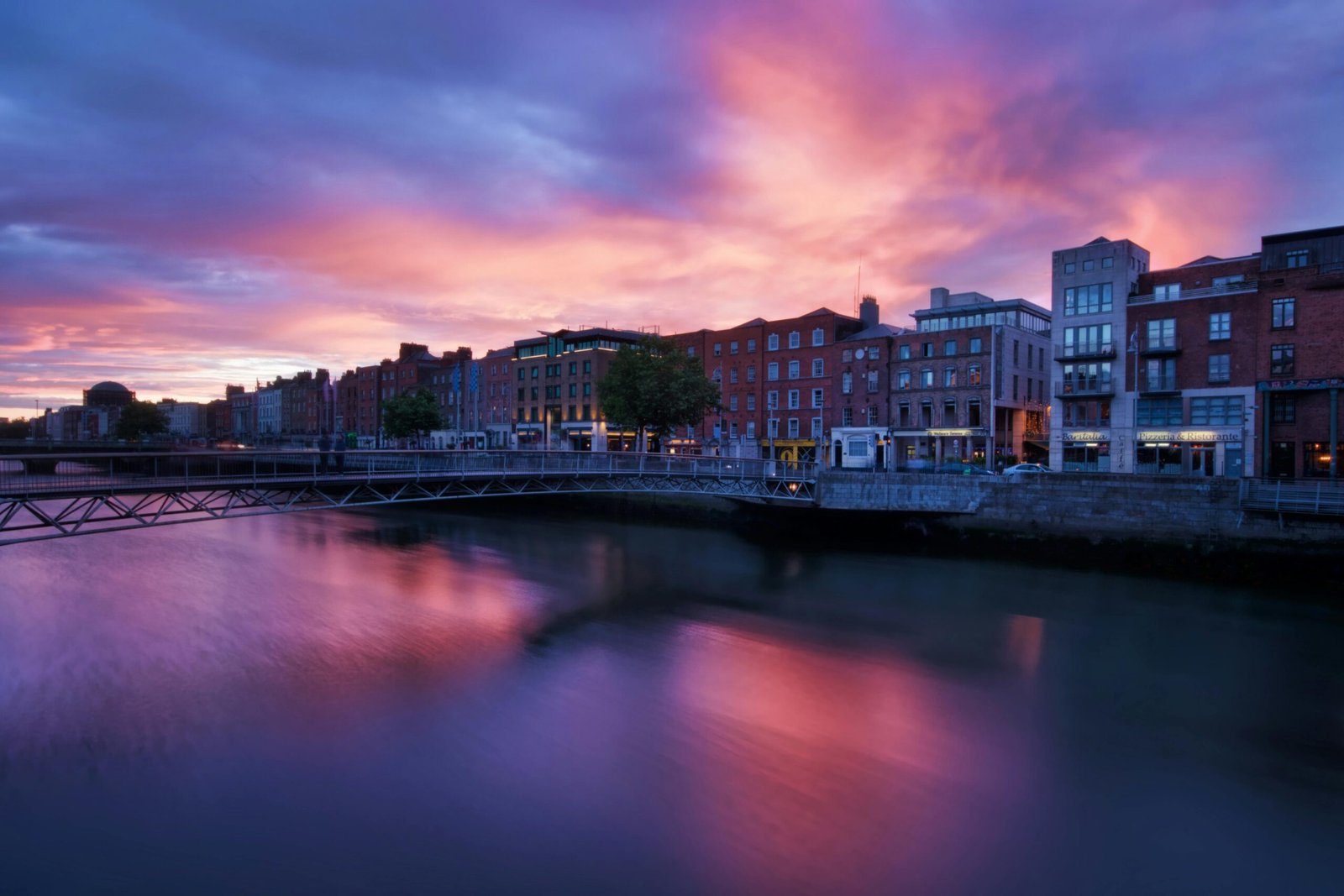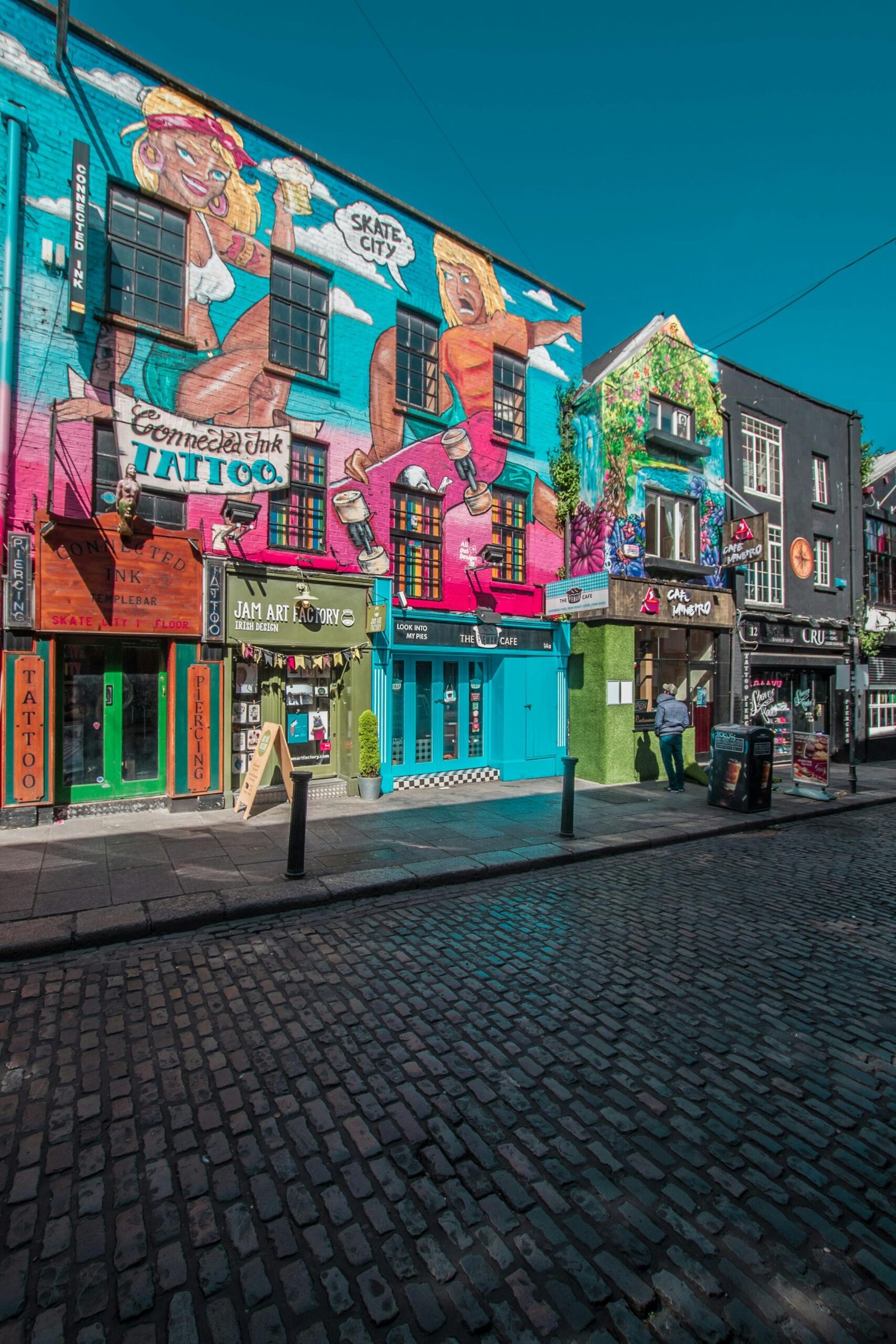Nestled in the southern part of Ireland, Cork stands as the nation’s second-largest city, often affectionately referred to as the “real capital of Ireland.” This charming city is a harmonious blend of historical richness, cultural vibrancy, and modern dynamism, making it a quintessential stop for any traveler exploring the Emerald Isle.
Cork’s historical background is deeply intertwined with its development as a major seaport. The city’s origins date back to the 6th century when Saint Fin Barre founded it. Over the centuries, Cork has witnessed significant events that have shaped its identity, from Viking invasions to its role in the Anglo-Norman conquest. The city’s medieval streets, historic buildings, and ancient churches testify to its storied past.
Beyond its historical significance, Cork is renowned for its cultural vitality. The city boasts a thriving arts and music scene, which is evident in its numerous galleries, theaters, and live music venues. The annual Cork Jazz Festival, one of Europe’s premier jazz events, attracts artists and enthusiasts from around the globe. Additionally, the Cork Opera House and the Crawford Art Gallery are cultural landmarks that offer rich experiences for visitors.
What sets Cork apart is its unique charm and the warmth of its people. The city’s compact size makes it easy to explore on foot, allowing visitors to immerse themselves in its quaint streets, bustling markets, and picturesque waterfront. The English Market, a historic indoor market, is a culinary haven where one can savor local delicacies and engage with friendly vendors.
In essence, Cork is a city that seamlessly blends the old with the new. Its rich history, cultural importance, and inviting atmosphere make it a must-visit destination for anyone seeking an authentic Irish experience. Whether you’re drawn by its historical sites, its vibrant arts scene, or simply the allure of its welcoming spirit, Cork promises an unforgettable journey.
Things to See and Do

Explore the English Market
One of the oldest municipal markets in the world, the English Market in Cork offers a unique experience. Established in 1788, this vibrant market is home to a variety of local produce, artisanal goods, and delicious treats. It’s a must-visit for food lovers!
Visit Blarney Castle
No trip to Cork is complete without visiting the iconic Blarney Castle. Famous for the Blarney Stone, legend says that kissing the stone will bestow the gift of eloquence. The castle’s lush gardens and scenic views are equally captivating.
Stroll Through Fitzgerald Park
Nestled along the River Lee, Fitzgerald Park is a serene escape in the heart of Cork. The park features beautifully landscaped gardens, a picturesque pond, and the Cork Public Museum, making it an ideal spot for a leisurely afternoon.
Discover Cork City Gaol
Step back in time with a visit to Cork City Gaol, a former prison turned museum. The jail offers a fascinating glimpse into Ireland’s past, with exhibitions detailing the lives of its inmates and the history of the penal system.
Enjoy the Views from Shandon Bells
Climb the tower of St. Anne’s Church, known as Shandon Bells, for panoramic views of Cork City. While you’re there, don’t miss the chance to ring the famous bells yourself – a fun and memorable experience!
Take a Walk on the Lee Fields
The Lee Fields are a popular spot for a scenic walk or jog along the River Lee. This picturesque area is perfect for enjoying nature and getting some fresh air, with plenty of wildlife to observe along the way.
Explore the Crawford Art Gallery
Located in the heart of Cork, the Crawford Art Gallery houses an impressive collection of Irish and European art. The gallery’s exhibitions span several centuries, offering a rich cultural experience for art enthusiasts.
Visit Blackrock Castle Observatory
For a blend of history and science, head to Blackrock Castle Observatory. The 16th-century castle now serves as an interactive science center, featuring exhibits on astronomy and space exploration.
Experience Live Music at Sin É
Sin É is one of Cork’s most beloved pubs, known for its lively atmosphere and traditional Irish music sessions. Enjoy a pint of local beer while soaking in the authentic sounds of Ireland.
Relax in the Tranquil Ballycotton Cliff Walk
For breathtaking coastal views, take the Ballycotton Cliff Walk. This roughly five-mile trail offers stunning vistas over the Atlantic Ocean and is a perfect way to unwind and appreciate Ireland’s natural beauty.
Typical Costs
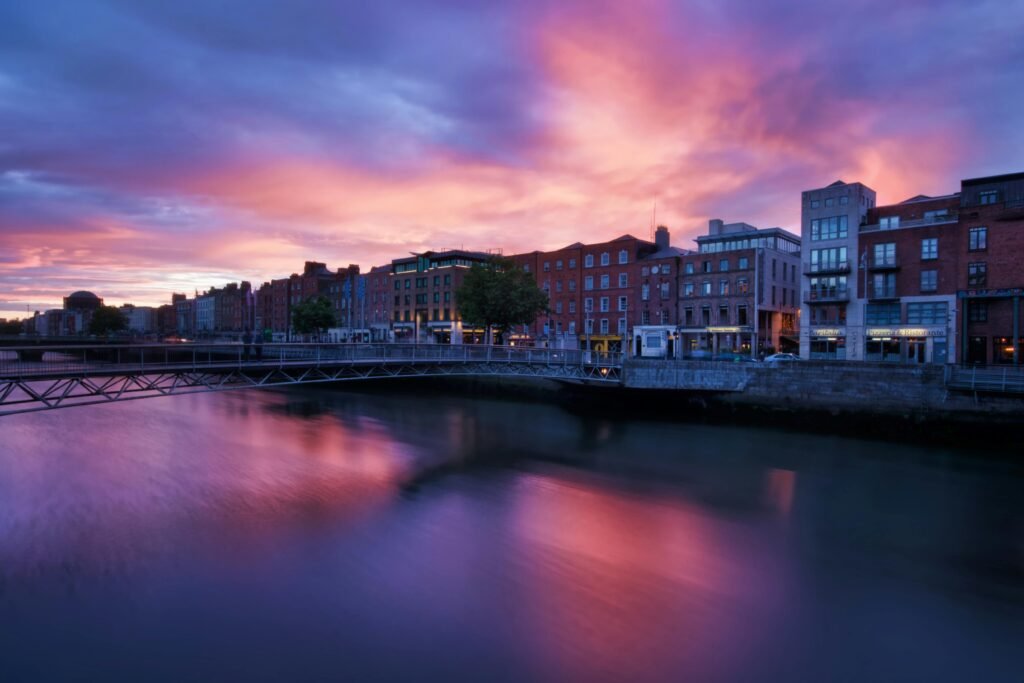
Accommodation
When planning a trip to Cork, finding the right accommodation is a critical part of the experience. The city offers a diverse array of lodging options, catering to different budgets and preferences. For travelers seeking economical stays, budget-friendly hostels are a popular choice. The average nightly rate for a hostel in Cork typically ranges from €15 to €30. These hostels often provide essential amenities such as free Wi-Fi, shared kitchens, and communal spaces, making them an excellent option for backpackers and solo travelers.
For those preferring a mid-range option, Cork boasts numerous hotels that offer a comfortable stay without breaking the bank. Mid-range hotels generally charge between €70 and €120 per night. These establishments often include amenities such as complimentary breakfast, on-site dining, and fitness centers. Travelers can find great deals by booking in advance or taking advantage of off-peak seasons, which can significantly reduce costs.
Luxury seekers will find Cork’s high-end hotels and boutique accommodations appealing, with nightly rates typically starting at €150 and reaching up to €300 or more. These luxurious stays offer premium amenities, including spa services, fine dining restaurants, and personalized concierge services. Such hotels are often situated in prime locations, providing easy access to Cork’s key attractions and vibrant city life.
It is important to note that accommodation prices in Cork can vary significantly depending on the time of year. During peak tourist seasons, such as summer and major festivals, prices can increase considerably. Conversely, traveling during the shoulder seasons of spring and autumn can result in better rates and availability.
Location within Cork also plays a pivotal role in determining accommodation costs. Staying in the city center or near popular attractions will generally be more expensive compared to lodging in the suburbs. However, Cork’s efficient public transportation system makes it convenient to explore the city from various locations, providing flexibility in choosing accommodations.
To find the best deals, travelers are advised to use comparison websites, subscribe to hotel newsletters for promotional offers, and consider booking refundable rates to take advantage of potential price drops. By carefully considering the type of accommodation, timing of the visit, and location, visitors can enjoy a comfortable and cost-effective stay in Cork.
Food
When traveling to Cork, Ireland, understanding the typical costs associated with dining and food can significantly enhance your experience. Whether you are a budget traveler, a mid-range spender, or someone looking to indulge in high-end dining, Cork offers a variety of options to cater to your preferences.
For budget eats, street food and fast food are excellent choices. A meal at a fast food restaurant typically costs around €8-€12. You can also explore local food markets like the English Market, which offers a plethora of fresh produce, baked goods, and ready-to-eat meals. The English Market is renowned for its array of local specialties, such as the traditional Irish breakfast and Clonakilty black pudding.
Mid-range restaurants in Cork provide a comfortable dining experience without breaking the bank. A meal at a mid-range restaurant usually costs between €15-€30 per person. These establishments often feature local Irish dishes, such as seafood chowder, shepherd’s pie, and fish and chips. For a delightful blend of local and international cuisine, consider visiting restaurants like Market Lane or Orso Kitchen & Bar.
If you are looking to splurge, Cork’s high-end dining options will not disappoint. Fine dining establishments like Greenes Restaurant or Ichigo Ichie offer exquisite meals that range from €60-€100 per person. These restaurants often feature tasting menus that highlight the best of Irish culinary artistry, incorporating fresh, locally sourced ingredients. Dishes such as roast racks of lamb or poached lobster are common in these upscale venues.
For those who prefer to cook their meals, Cork has several grocery store options like Tesco, SuperValu, and Dunnes Stores. These supermarkets provide a wide range of products, from fresh produce to international foods, allowing travelers to prepare their budget-friendly meals. Additionally, local farmers’ markets are a great place to find fresh, organic ingredients.
Whether you are dining out or cooking in, Cork offers a diverse culinary landscape that caters to all budgets and tastes, ensuring a fulfilling gastronomic experience during your stay.
Hostels and Budget-Friendly Stays
For travelers seeking economical accommodations in Cork, hostels and budget-friendly stays offer a practical solution. On average, hostel prices range from €15 to €30 per night for a dormitory bed, while private rooms can cost between €50 and €80 per night, depending on the season and the hostel’s location. These prices can fluctuate, so booking in advance is recommended to secure the best rates.
Hostels in Cork typically provide a variety of amenities to ensure a comfortable stay. Common facilities include free Wi-Fi, communal kitchens, and shared lounges, which create an inviting social atmosphere. Some hostels also offer complimentary breakfast, laundry services, and bicycle rentals. Additionally, many hostels host events such as walking tours or social nights, enhancing the communal experience.
The social aspect of staying in a hostel is one of its most appealing features. Dormitory rooms, accommodating anywhere from 4 to 12 beds, encourage interactions among travelers from diverse backgrounds. For those who prefer more privacy, private rooms are available at a higher cost. Regardless of room type, most hostels provide secure lockers for personal belongings, though guests may need to bring their padlocks.
When planning a stay in Cork, it’s beneficial to be aware of any additional costs associated with hostel accommodations. Some hostels may require a security deposit, typically refundable upon check-out, and fees for extra services such as towel rental or late check-out. To maximize savings, consider booking through platforms that offer membership cards, which often provide discounts on stays and other travel-related expenses.
Popular hostels in Cork include Kinlay House, Sheilas Hostel, and Bru Bar & Hostel, each offering unique features and amenities. Kinlay House is known for its historic building and central location, Sheilas Hostel is praised for its extensive facilities, and Bru Bar & Hostel is favored for its lively bar and entertainment options.
By choosing hostels and budget-friendly accommodations, travelers can enjoy an affordable and enriching experience in Cork, making the most of their visit without straining their budget.
Entertainment
Cork offers a diverse array of entertainment options and activities, catering to a variety of interests and budgets. Exploring the city’s rich cultural heritage and vibrant social scene can be both affordable and enjoyable. For those seeking low-cost or free activities, public parks, museums, and historical sites present an excellent starting point.
Many of Cork’s museums, such as the Crawford Art Gallery and the Cork Public Museum, offer free admission, making them ideal for budget-conscious travelers. Additionally, the city’s parks, including Fitzgerald Park and the stunning University College Cork grounds, provide beautiful landscapes and tranquil spots for relaxation at no cost.
For history enthusiasts, a visit to the iconic St. Anne’s Church and the famous Shandon Bells costs around €5, providing a unique experience without breaking the bank. Similarly, the Cork City Gaol, a historical site, charges approximately €10 for entry, delivering an educational and intriguing glimpse into the past.
On the higher end of the spectrum, guided tours and specialty experiences can be more expensive but offer in-depth exploration of Cork’s attractions. A guided tour of the Jameson Distillery Midleton, for example, costs about €23, including a tasting session. Concerts and theater performances at venues like the Cork Opera House generally range from €20 to €60, depending on the event and seating preferences.
Nightlife in Cork is vibrant, with numerous pubs and clubs offering a lively atmosphere. Entry fees for clubs typically range from €10 to €20, while enjoying traditional Irish music in a local pub can often be free, aside from the cost of drinks.
To save money on entertainment, consider purchasing a Cork City Pass, which provides discounted or free entry to several attractions. Additionally, keep an eye out for free local events and festivals, which are frequent in Cork. Students and seniors should inquire about available discounts to further reduce costs.
By blending free and low-cost activities with occasional splurges on pricier experiences, travelers can enjoy the full spectrum of entertainment that Cork has to offer without exceeding their budget.
Suggested Budget
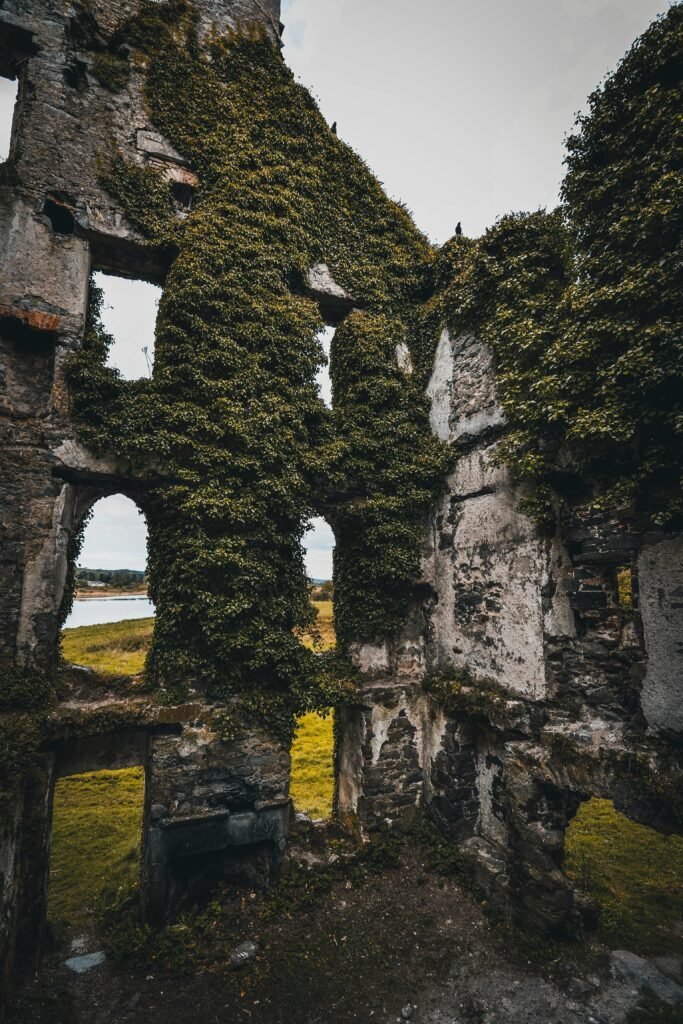
Backpacking Budget
For those traveling on a budget, Cork can be surprisingly affordable. Hostels and budget accommodations can cost between €20-€40 per night. Opt for street food or budget-friendly eateries, where meals can range from €5-€10. Use public transport, which is reasonably priced, or even better, explore the city on foot. Overall, a daily budget of €40-€60 should suffice for a backpacker.
Mid-Range Budget
If you have a bit more to spend, Cork offers a variety of mid-range options. Comfortable hotels or B&Bs can cost between €70-€120 per night. Dining at mid-range restaurants will set you back around €15-€30 per meal. Consider renting a bike or using taxis for convenience. With this budget, expect to spend around €100-€150 per day, allowing for some sightseeing and occasional splurges.
Luxury Budget
For those seeking a luxurious experience, Cork does not disappoint. High-end hotels and boutique accommodations typically cost €150 and upwards per night. Fine dining experiences can range from €50-€100 per meal, offering exquisite local and international cuisine. Private tours, chauffeur services, and exclusive experiences will enhance your trip. A daily budget of €250 or more will ensure a lavish stay in Cork.
Money-Saving Tips
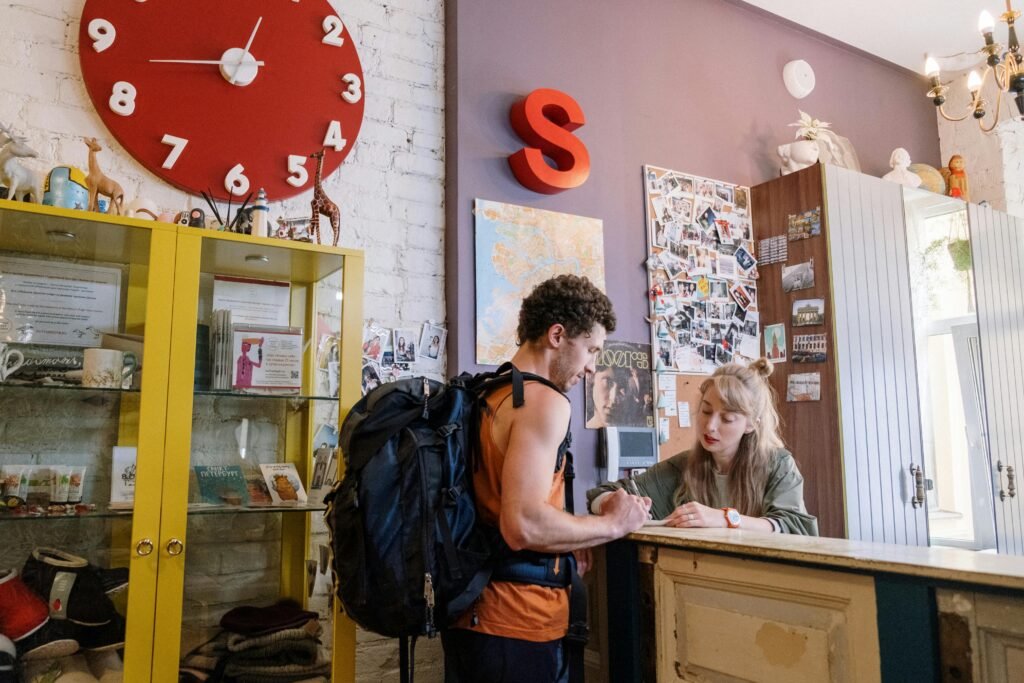
Stay in Hostels: Cork has several affordable and comfortable hostels that offer a great way to meet fellow travelers.
Use Airbnb: Renting a room or an apartment can be cheaper than staying in a hotel and provides a more local experience.
Book in Advance: Secure your accommodation well in advance to get the best rates.
Cook Your Meals: If you have access to a kitchen, buying groceries and cooking your meals can save a lot of money.
Eat Like a Local: Look for local eateries and food markets instead of dining in touristy areas.
Take Advantage of Lunch Deals: Many restaurants offer cheaper lunch specials, so make lunch your main meal of the day.
Walk or Bike: Cork is a compact city that’s easy to explore on foot or by renting a bike, saving on transportation costs.
Free Attractions: Visit free attractions such as Fitzgerald Park, the English Market, and the Crawford Art Gallery.
Public Transportation: When you do need to get around, use public transportation, which is both efficient and affordable.
Discount Cards: Invest in a visitor card that offers discounts on attractions, transportation, and dining.
Where to Stay

1. The River Lee Hotel
The River Lee Hotel offers a luxurious stay with stunning views of the river. It boasts modern amenities, a spa, and an indoor pool, making it an ideal choice for travelers looking for comfort and relaxation.
2. Hayfield Manor
This 5-star boutique hotel is perfect for those seeking a touch of elegance and history. Hayfield Manor combines traditional Irish charm with contemporary comforts, providing an unforgettable experience.
3. The Montenotte Hotel
With its chic design and panoramic views of Cork City, The Montenotte Hotel is a popular choice among travelers. It features a rooftop bar, a cinema, and a spa, ensuring a memorable stay.
4. Clayton Hotel Cork City
Centrally located, the Clayton Hotel Cork City offers easy access to major attractions. It is known for its spacious rooms, excellent service, and fitness center, catering to the needs of all kinds of travelers.
5. The Imperial Hotel Cork
This historic hotel combines classic elegance with modern comforts. The Imperial Hotel Cork is situated in the heart of the city, making it convenient for exploring local attractions and dining options.
How to Get Around
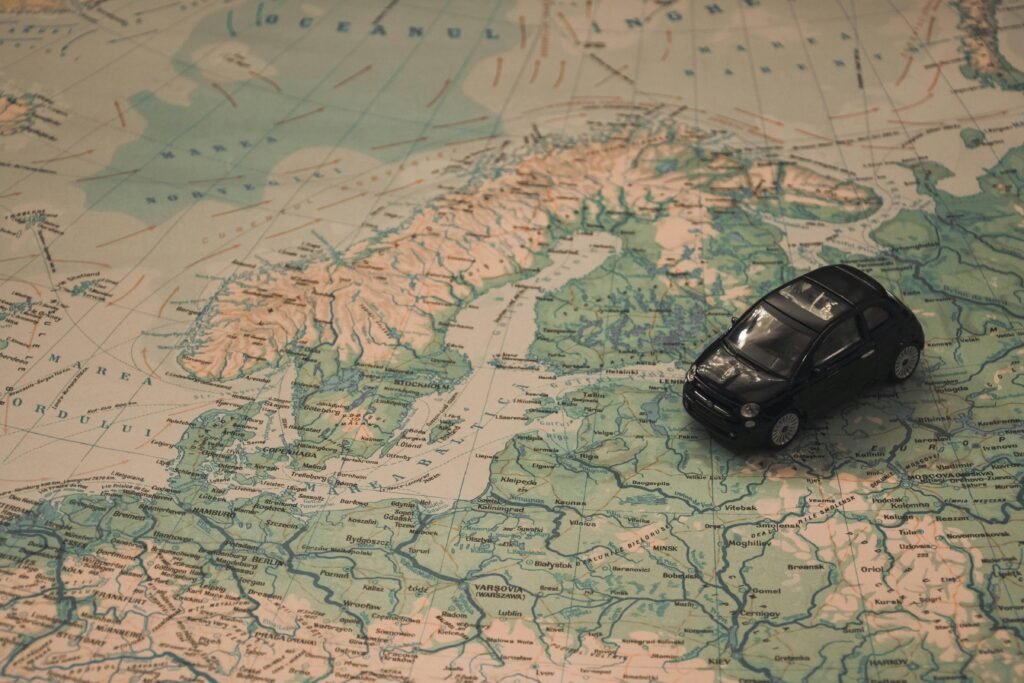
Public Transportation Options in Cork
Cork offers a comprehensive public transportation system that makes navigating the city and its surrounding areas convenient and efficient. Central to this system are the buses and trains, which provide extensive coverage and frequent services.
The bus network in Cork is operated primarily by Bus Éireann. The main routes cover key areas within the city, such as the 202 and 203, which connect the city center to the suburbs. The 208 route is particularly popular, linking the city center with University College Cork. Fares for bus rides vary depending on the distance traveled but generally range from €1.60 to €2.80 for adult single journeys. Tickets can be purchased directly from the bus driver with cash, or via the TFI Leap Card, which offers discounted rates and can be topped up at various locations around the city.
For those looking to travel beyond Cork, the local train services provide an excellent option. Operated by Iarnród Éireann, the trains connect Cork to nearby towns and cities, including Cobh, Midleton, and Mallow. The main train station, Kent Station, is centrally located and offers regular services throughout the day. Tickets for train travel can be bought online, at the station, or through the TFI Leap Card, which also provides discounts for frequent travelers.
To navigate Cork’s public transport system efficiently, travelers are advised to use travel apps such as the TFI Journey Planner and Real Time Ireland. These apps provide real-time updates on bus and train services, helping passengers plan their journeys and avoid delays. Understanding peak travel times – typically during morning and evening rush hours – can also help in avoiding crowded services and ensuring a smoother travel experience.
Overall, Cork’s public transportation system is well-equipped to meet the needs of both residents and visitors, offering reliable and affordable options for getting around the city and beyond.
Cycling and Walking in Cork
Exploring Cork on foot or by bicycle not only offers an immersive experience but also aligns with sustainable travel principles. Cork is a city designed with pedestrians and cyclists in mind, featuring a range of pedestrian-friendly areas and scenic walking routes that showcase its vibrant culture and picturesque landscapes.
For those who prefer walking, Cork’s city center boasts numerous pedestrian zones where the charm of historical architecture and local shops can be enjoyed at a leisurely pace. The English Market, St. Patrick’s Street, and the picturesque Shandon Bells are all within walking distance. Additionally, the River Lee offers serene riverside walks, providing a tranquil escape from the urban hustle.
Cycling enthusiasts will find Cork equally accommodating. The city has invested significantly in cycling infrastructure, including dedicated bike lanes and numerous bike racks throughout the central areas. Bike rental services such as Cork Bike Share and local shops like The Bike Shed offer convenient options for both short-term and long-term rentals. Notable cycling routes include the Cork City to Ballincollig Regional Park and the scenic route along the Lee Fields. These paths not only ensure a safe journey but also treat cyclists to some of the most beautiful sights in Cork.
Safety is paramount when cycling in Cork. Cyclists are advised to wear helmets and high-visibility clothing, especially during the early morning or late evening hours. It is also crucial to adhere to traffic rules and use designated bicycle lanes wherever possible. Cork’s compact size and well-planned routes make it easy to navigate, even for those unfamiliar with the area.
Opting for cycling and walking in Cork benefits not just the traveler but the environment as well. These modes of transport reduce carbon emissions and promote a healthier lifestyle by incorporating physical activity into daily routines. Walking and cycling also offer the advantage of experiencing Cork at a slower pace, allowing for spontaneous discoveries and a deeper connection with the city.
Car Rental and Driving in Cork
Travelers visiting Cork often find that renting a car offers a convenient and flexible way to explore the city and its surrounding attractions. To begin with, car rental services in Cork are readily available at Cork Airport and throughout the city center. It’s advisable to book your rental car in advance, particularly during peak tourist seasons, to ensure availability and secure better rates. Online platforms and comparison websites can help you find the best deals from reputable car rental companies.
Rental costs in Cork can vary based on the type of vehicle, duration of rental, and time of year. On average, expect to pay between €30 to €70 per day for a standard vehicle. Additional costs may include insurance, fuel, and optional extras such as GPS or child seats. Be sure to review the rental agreement carefully to understand all fees.
Driving in Cork requires some adjustment, particularly for visitors from countries where driving is on the right side of the road. In Ireland, vehicles drive on the left, and the driver’s seat is on the right side of the car. Familiarize yourself with local road signs, which are in English, and use kilometers per hour for speed limits. Roundabouts are common, and vehicles already on the roundabout have the right of way.
Parking in Cork can be challenging, especially in the city center. There are several parking garages available, such as the Q-Park Grand Parade and Paul Street Car Park, which offer hourly and daily rates. Street parking is also an option, but it’s essential to pay attention to parking signs and meters to avoid fines. Many street parking areas operate on a pay-and-display basis, and some may have time restrictions.
To avoid common pitfalls like parking fines, always check for any signage that indicates parking restrictions or permit requirements. Mobile apps can also be useful for finding available parking spots and paying for parking in Cork. By following these tips, you can enjoy a smooth and stress-free driving experience while exploring Cork and its picturesque surroundings.
Best time to travel
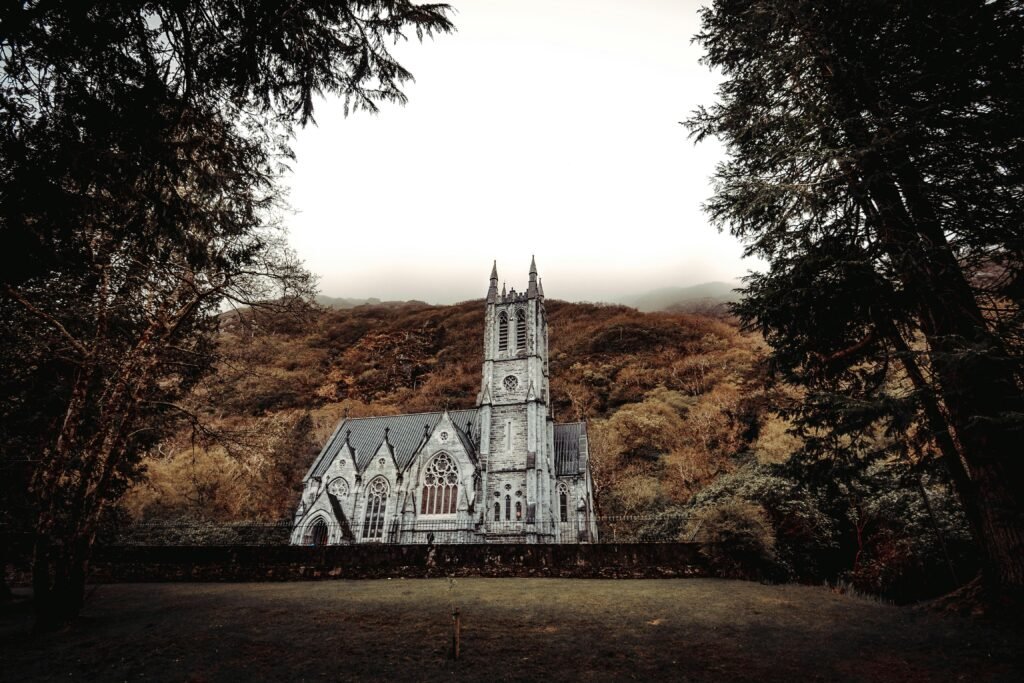
The Best Time to Visit Cork
When planning a trip to Cork, understanding the seasonal variations is crucial for optimizing your experience. Each season in Cork offers unique weather patterns, tourist activities, and cultural events, making it essential to choose a time that aligns with your preferences.
Spring (March to May): Spring in Cork is marked by mild temperatures and blossoming landscapes. Daytime highs range between 10°C to 15°C, making it pleasant for outdoor activities like hiking and exploring the lush countryside. Tourist crowds are relatively low, providing a more intimate experience at popular attractions. Seasonal events like the Cork St. Patrick’s Festival and the Cork International Choral Festival add cultural vibrancy to your visit.
Summer (June to August): Summer is the peak tourist season in Cork, characterized by warm weather and extended daylight hours. Temperatures can reach up to 20°C, perfect for coastal excursions and enjoying Cork’s numerous beaches. However, the influx of tourists means that popular sites can be crowded, and accommodations may be more expensive. The Midsummer Festival and live music events across the city enhance the lively summer atmosphere.
Autumn (September to November): Autumn in Cork brings cooler temperatures, ranging from 9°C to 17°C, and fewer tourists. This season is ideal for enjoying Cork’s natural beauty, with the changing foliage offering picturesque views. The Cork Jazz Festival, held in October, attracts music enthusiasts from around the world, making it a great time for cultural exploration. Lower tourist numbers also mean shorter lines at major attractions.
Winter (December to February): Winter in Cork is characterized by chilly weather, with temperatures ranging from 3°C to 9°C. While the days are shorter, the festive season brings a magical charm to the city. The Glow Cork Christmas Celebration transforms the city center with lights, markets, and holiday cheer. Winter is also a quieter season for tourism, allowing for a more relaxed pace of sightseeing. However, some outdoor activities may be limited due to weather conditions.
Understanding these seasonal nuances will help you choose the best time to visit Cork based on your interests, whether it’s outdoor adventures, cultural festivals, or a peaceful retreat.
How to Stay Safe
Tourists visiting Cork, Ireland, should be aware of several common scams and types of robberies that occur in the area. One prevalent scam involves fake charities. Scammers may approach tourists on the streets, in busy areas, or near major attractions, claiming to represent a local charity. They often carry counterfeit identification and official-looking donation boxes to appear legitimate. Travelers, moved by a sense of compassion, may donate money, not realizing it is going into the pockets of fraudsters.
Overcharging taxi drivers is another frequent issue. Unsuspecting tourists, unfamiliar with local rates and routes, might be taken advantage of by dishonest drivers who intentionally take longer routes or manipulate meters. It’s advisable for travelers to only use licensed taxi services and, if possible, agree on a fare before beginning their journey.
Pickpocketing remains a significant concern, especially in crowded areas such as markets, public transportation, and popular tourist spots. Pickpockets often work in groups and employ various tactics, such as creating distractions or bumping into their targets. Tourists, engrossed in sightseeing and unfamiliar with their surroundings, are particularly susceptible to these schemes. To mitigate the risk, travelers should keep their belongings secure and be vigilant in crowded settings.
One real-life example of a scam in Cork involved a group of individuals posing as survey researchers. They approached tourists, asking them to participate in a brief survey. During the interaction, the scammers subtly relieved the participants of their wallets and other valuables. This highlights the importance of being cautious of strangers requesting personal information or close interaction.
By understanding these common scams and robberies, tourists can be better prepared and take proactive measures to protect themselves while enjoying their visit to Cork. Awareness and vigilance are key to ensuring a safe and enjoyable travel experience.
Practical Safety Tips for Travelers in Cork
Traveling to Cork, Ireland requires a blend of vigilance and smart decision-making to ensure a safe and enjoyable experience. Here are some practical safety tips to protect yourself from scams and robberies while exploring this vibrant city.
When using ATMs, opt for machines located in well-lit, busy areas, preferably inside banks. Cover your PIN while entering it and be aware of your surroundings. It’s advisable to withdraw smaller amounts of cash to limit potential losses. Always handle cash discreetly and avoid displaying large sums in public.
Choosing safe accommodations is paramount. Research hotels or hostels in advance, focusing on those with strong security measures and positive reviews. Secure your valuables in a hotel safe, and keep a copy of your passport and other important documents separate from the originals.
Transportation safety is another key aspect. Use reputable taxi services or rideshare apps like Uber, ensuring the vehicle matches the app’s description before entering. Public transport in Cork is generally safe, but remain aware of your belongings, especially in crowded buses or trains.
In crowded areas, such as markets or tourist attractions, stay vigilant. Pickpockets often target distracted tourists, so keep personal belongings close. A crossbody bag with a secure zipper is a practical choice. Avoid placing wallets or phones in back pockets where they can be easily snatched.
Exercise caution when approached by strangers offering unsolicited help or services. Scammers may pose as friendly locals to distract and deceive. Always verify the credibility of tour guides and services through official channels or trusted recommendations.
Embrace digital tools to enhance your safety. Travel apps like Google Maps can help you navigate unfamiliar areas efficiently, while apps like TripIt keep your travel plans organized. Emergency contact apps and local police contact information are also essential for quick assistance if needed.
By following these practical safety tips, travelers can significantly reduce the risk of falling victim to scams or robbery while enjoying the rich culture and history that Cork has to offer.
Emergency Procedures and Local Resources
If you fall victim to a scam or robbery while visiting Cork, it is essential to act promptly and follow specific emergency procedures. Your first step should be to contact local law enforcement. The primary police service in Ireland is An Garda Síochána, often referred to simply as “Gardaí.” In Cork, the main Garda station is located at Anglesea Street, Cork City, and can be reached by phone at +353 21 452 2000. For emergencies, dial 112 or 999 to get immediate assistance.
When reporting a crime, providing as much detail as possible is crucial. This includes descriptions of the perpetrator, any stolen items, and the exact location and time of the incident. Filing a police report is vital, as it is not only a formal record of the crime but also necessary for any insurance claims you may need to file. Ensure you obtain a copy of the police report for your records.
In addition to local law enforcement, contacting your home country’s embassy or consulate can provide further support. These institutions can offer advice, help replace lost or stolen passports, and assist in accessing emergency funds. The U.S. Consulate in Dublin, for example, can be contacted at +353 1 668 8777, while the British Embassy can be reached at +353 1 205 3700.
Travelers can also access emergency funds through various means. Most major banks offer services to wire money internationally, and companies like Western Union provide quick transfer options. Additionally, some credit card companies offer emergency cash advances, which can be a lifesaver in urgent situations.
Several local organizations and hotlines in Cork offer assistance to tourists. The Cork Tourist Information Centre, located at Grand Parade, can provide guidance and support. They can be contacted at +353 21 425 5100. Moreover, the Irish Tourist Assistance Service (ITAS) offers help to visitors who have experienced crime, including support with replacement travel documents and emergency accommodation. They can be reached at +353 1 666 9354.
By knowing these emergency procedures and local resources, you can take swift and effective action to mitigate the impact of a scam or robbery, ensuring your safety and peace of mind while traveling in Cork.
Cultural Etiquette and Building Trust with Locals
Understanding local culture and etiquette is crucial for travelers seeking to avoid misunderstandings that could lead to scams or unsafe situations. In Cork, as in the rest of Ireland, respectful engagement with locals can significantly enhance your personal safety and overall travel experience. Familiarity with cultural nuances not only fosters positive interactions but also helps in recognizing trustworthy situations and individuals.
When interacting with locals, it is essential to be polite. The Irish are known for their friendliness and hospitality, so a warm greeting and a smile can go a long way. Avoiding overly direct or intrusive questions and respecting personal space can help in building a rapport. Additionally, showing an interest in local customs, traditions, and history can endear you to the people you meet.
Engaging with local business owners, hotel staff, and other trusted figures can provide invaluable advice and support. Establishing a friendly relationship with these individuals can yield recommendations for safe places to visit, reliable services, and potential areas to avoid. Hotel staff, for instance, are often well-informed about local safety concerns and can offer practical tips on navigating the city securely.
Being aware of common scams and how they typically operate in Cork is another vital aspect of cultural awareness. For example, if approached by someone offering unsolicited help or deals that seem too good to be true, it’s prudent to be cautious. Trustworthiness can often be gauged through the consistency of information provided and the reputation of the establishment or individual offering assistance.
Building trust with locals also involves recognizing the importance of social norms and communication styles. The Irish often use subtle humor and indirect communication, so being attuned to these subtleties can prevent misinterpretations. Demonstrating respect for local etiquette not only enhances personal safety but also contributes to a more enriching and enjoyable travel experience in Cork.
Why Cork Should Be on Your Travel List
Cork, Ireland, with its rich tapestry of history, vibrant culture, and stunning natural landscapes, stands as a compelling destination for any traveler. The city’s historic sites, from the medieval charm of its castles to the poignant echoes of the past in its museums, offer a deep dive into Ireland’s storied past. Yet, Cork is not just a relic of history; it is a living, breathing city that pulses with life and contemporary culture. The bustling English Market showcases the best of local produce and the city’s culinary prowess, while the thriving arts scene, evidenced by numerous galleries and theaters, highlights Cork’s creative spirit.
Nature enthusiasts will find Cork’s surroundings equally enchanting. The rugged coastlines, serene bays, and lush countryside provide ample opportunities for outdoor activities, from hiking and cycling to sailing and wildlife spotting. The picturesque villages and towns that dot the region, each with their unique character and charm, invite exploration and discovery.
Moreover, Cork’s welcoming atmosphere and the warmth of its people make it a destination that feels like home from the moment you arrive. The city’s blend of tradition and modernity ensures that there is something for everyone, whether you are a history buff, a foodie, an art lover, or an adventure seeker.
As you plan your next travel adventure, consider Cork as your destination. Its unique blend of attractions, combined with its natural beauty and cultural vibrancy, promises an experience that will be both enriching and unforgettable. Start planning your trip to Cork today, and discover why this remarkable city should be on every traveler’s list.

